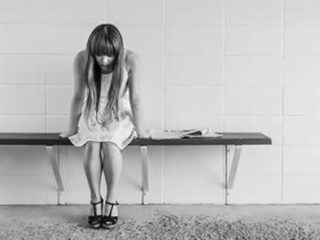For most couples, the decision to have a child is a no-brainer. After a year or two of married life, you decide you’re ready to transition from being newlyweds to parents. If you’re fortunate enough to conceive easily, a bouncing baby girl or boy usually arrives within the year. Sounds so simple, doesn’t it?
Not for those of us with chronic illness. Under these circumstances, the decision to parent can be a long and emotionally gut-wrenching journey.
Fundamentally, there are two issues that come into play fo rcouples with chronic illness who desire to have children.
1. If you’re able to get pregnant, how will your chronic illness impact your pregnancy and vice versa?
2. Will your chronic illness permit you to parent your child?
Just because you can get pregnant, doesn’t mean you should.
Two years after getting married at the age of 37, I was determined to get pregnant and have a baby. I had no idea how the combination of pregnancy and Muscular Dystrophy would affect my body or how I’d parent with limited strength. I only knew that I wanted to get pregnant and I did.
I became pregnant and experienced the most crushing fatigue I have ever known during the first eight weeks of my pregnancy. I was exhausted all the time and had terrible night-time nausea. I began to wonder what I had gotten myself into.
At nine weeks, I suddenly miscarried. I was inconsolable. I was 39 years old and began to wonder if I was ever going to become a mother. My husband, Jeff, gently brought up the topic of adoption. From the start, Jeff wanted to adopt as a way to build our family. He always believed it was a better option for us considering my physical limitations. I wasn’t so sure but began to give it some serious thought.
It took a while for me to grieve both the miscarriage and the loss of not having a biological child. On my more rational days, I truly did understand the toll a pregnancy would take on my body, the physical burden it would put on Jeff and the significant amount of care a newborn baby would require. I gradually warmed to the idea of adoption.
On a sunny February day, we submitted our paperwork to an adoption agency with the hope of adopting a little girl from China. Twenty long months later, we traveled to China to meet our new four-year old daughter Claire.
Ultimately, I decided that being a mother was more important than being pregnant.
It takes a village
Only you know whether you have the capacity to parent a child given your illness. No one can make that decision for you. You have to do some soul searching and get honest with yourself about whether you have the stamina, energy and resources to bring a child into your home.
The old adage that it takes a village to raise a child is true, especially for those of us with chronic illness. Parenting is hard work.Breaks are far and few between even when illness is flaring or you’re struggling with extreme fatigue. But parenting well in spite of illness is possible as long as you’re willing to ask for help and be creative.
Here are some questions every couple living with illness needs to answer before contemplating parenthood:
- What are my doctor’s thoughts on illness and pregnancy?
- Will pregnancy make my condition worse?
- Will the treatments I receive for the illness harm our unborn child in any way?
- If my disease is hereditary, will our child inherit the condition?
- Do I have the physical strength to endure a pregnancy?
- Do we have the support and encouragement of our family and friends?
- What if a difficult pregnancy results in an uneven distribution of work around the house? Will there be resentment? If so, how do we handle this?
- Do we have the financial resources to hire someone to help care for our child if needed?
- What if I am unable to work during or after pregnancy? How will we afford to live on one income?
- Should we consider adoption when building a family? If so, what needs to change in order to view this option as acceptable?
- If we decide not to have children, will we feel deficient in any way?
- Are there other ways we can fulfill our needs to nurture, care for and mentor a child?
As so many have said before me, parenting is the hardest and also the most rewarding thing I’ve ever done. I thank God daily for my daughter and the gift she is to me and my husband. In hindsight, I now know that I could not have handled a pregnancy or cared for a newborn without compromising my health. I have no regrets. Adopting a four-year-old, who was already fairly self-sufficient, was absolutely the right choice for us.
If your heart’s desire is to be a parent, don’t give up hope. If you’re willing to think creatively, research your options, prepare well, and ask for the help you need, parenting and chronic illness can absolutely coexist.
Adapted from, For Better or Worse: A Guide to Talking About Illness in Your Marriage
Get Helena’s book, For Better or Worse: A Guide to Talking About Illness in Your Marriage
Helena Madsen is a happily married wife, mother, counselor and writer who lives with Limb Girdle Muscular Dystrophy. She is the founder of ChronicMarriage.com, an online community dedicated to helping couples with chronic illness build extraordinary marriages. She recently published her first ebook For Better or Worse: A Guide to Talking About Illness in Your Marriage.












